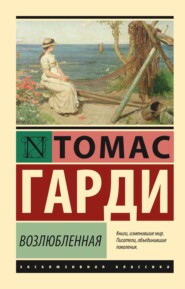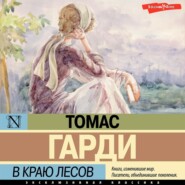По всем вопросам обращайтесь на: info@litportal.ru
(©) 2003-2025.
✖
Time's Laughingstocks, and Other Verses
Настройки чтения
Размер шрифта
Высота строк
Поля
X
The taverns tell the gloomy tale,
The gloomy tale,
How that at Ivel-chester jail
My Love, my sweetheart swung;
Though stained till now by no misdeed
Save one horse ta’en in time o’ need;
(Blue Jimmy stole right many a steed
Ere his last fling he flung.)
XI
Thereaft I walked the world alone,
Alone, alone!
On his death-day I gave my groan
And dropt his dead-born child.
’Twas nigh the jail, beneath a tree,
None tending me; for Mother Lee
Had died at Glaston, leaving me
Unfriended on the wild.
XII
And in the night as I lay weak,
As I lay weak,
The leaves a-falling on my cheek,
The red moon low declined —
The ghost of him I’d die to kiss
Rose up and said: “Ah, tell me this!
Was the child mine, or was it his?
Speak, that I rest may find!”
XIII
O doubt not but I told him then,
I told him then,
That I had kept me from all men
Since we joined lips and swore.
Whereat he smiled, and thinned away
As the wind stirred to call up day.
– ’Tis past! And here alone I stray
Haunting the Western Moor.
Notes. – “Windwhistle” (Stanza iv.). The highness and dryness of Windwhistle Inn was impressed upon the writer two or three years ago, when, after climbing on a hot afternoon to the beautiful spot near which it stands and entering the inn for tea, he was informed by the landlady that none could be had, unless he would fetch water from a valley half a mile off, the house containing not a drop, owing to its situation. However, a tantalizing row of full barrels behind her back testified to a wetness of a certain sort, which was not at that time desired.
“Marshal’s Elm” (Stanza vi.) so picturesquely situated, is no longer an inn, though the house, or part of it, still remains. It used to exhibit a fine old swinging sign.
“Blue Jimmy” (Stanza x.) was a notorious horse-stealer of Wessex in those days, who appropriated more than a hundred horses before he was caught, among others one belonging to a neighbour of the writer’s grandfather. He was hanged at the now demolished Ivel-chester or Ilchester jail above mentioned – that building formerly of so many sinister associations in the minds of the local peasantry, and the continual haunt of fever, which at last led to its condemnation. Its site is now an innocent-looking green meadow.
April 1902.
THE TWO ROSALINDS
I
The dubious daylight ended,
And I walked the Town alone, unminding whither bound and why,
As from each gaunt street and gaping square a mist of light ascended
And dispersed upon the sky.
II
Files of evanescent faces
Passed each other without heeding, in their travail, teen, or joy,
Some in void unvisioned listlessness inwrought with pallid traces
Of keen penury’s annoy.
III
Nebulous flames in crystal cages
Leered as if with discontent at city movement, murk, and grime,
And as waiting some procession of great ghosts from bygone ages
To exalt the ignoble time.
IV
In a colonnade high-lighted,
By a thoroughfare where stern utilitarian traffic dinned,
On a red and white emblazonment of players and parts, I sighted
The name of “Rosalind,”
V
And her famous mates of “Arden,”
Who observed no stricter customs than “the seasons’ difference” bade,
Who lived with running brooks for books in Nature’s wildwood garden,
And called idleness their trade.
VI
Now the poster stirred an ember
Still remaining from my ardours of some forty years before,
When the selfsame portal on an eve it thrilled me to remember
A like announcement bore;
VII
And expectantly I had entered,

















